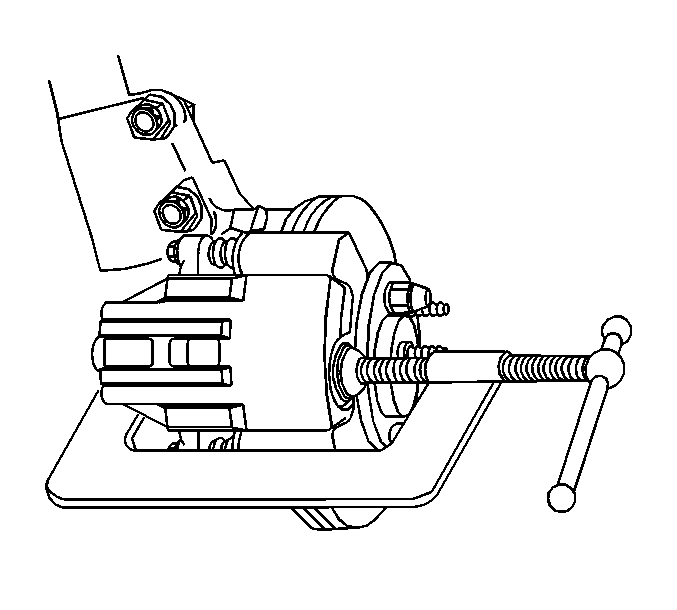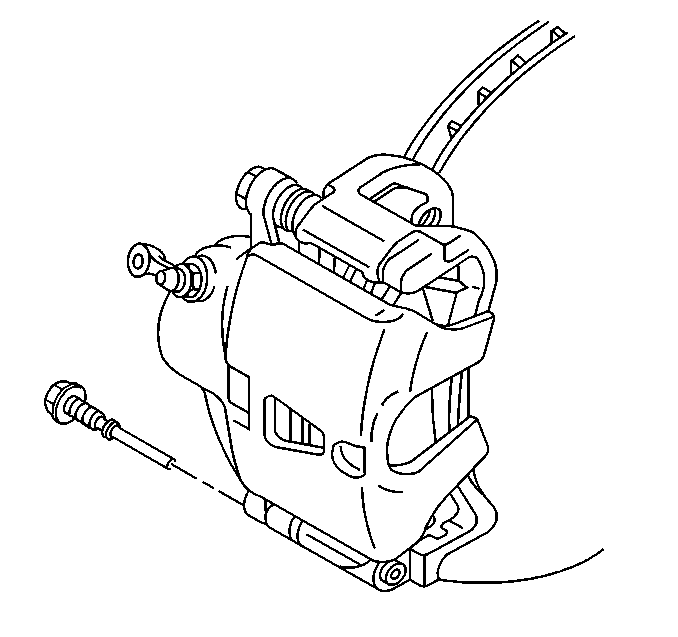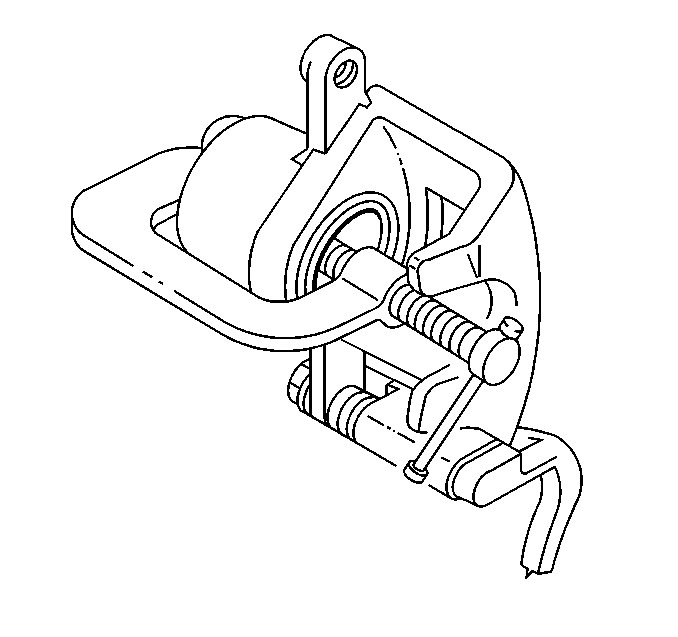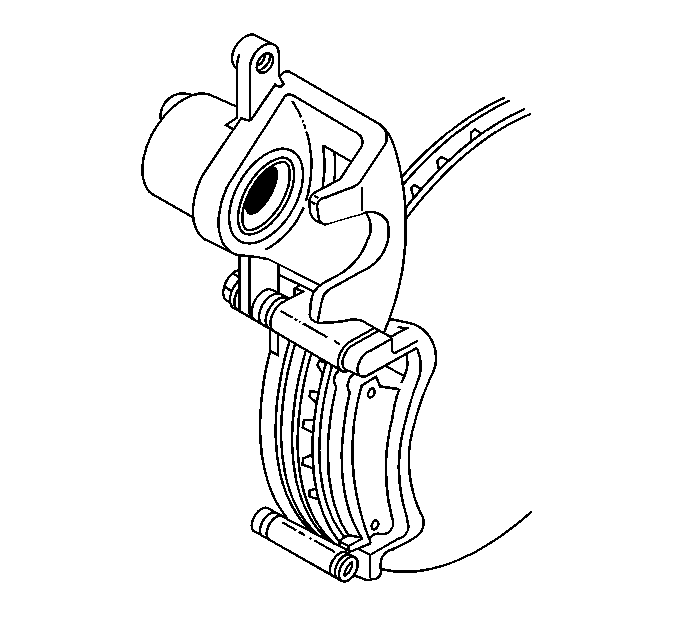Removal Procedure
Notice: Use the correct fastener in the correct location. Replacement fasteners must be the correct part number for that application. Fasteners requiring replacement or fasteners requiring the use of thread locking compound or sealant are identified in the service procedure. Do not use paints, lubricants, or corrosion inhibitors on fasteners or fastener joint surfaces unless specified. These coatings affect fastener torque and joint clamping force and may damage the fastener. Use the correct tightening sequence and specifications when installing fasteners in order to avoid damage to parts and systems.
- Remove two-thirds of brake fluid from master cylinder.
- Raise the vehicle and suitably support. Refer to Lifting and Jacking the Vehicle in General Information.
- Mark the relationship of wheel to the axle flange.
- Remove the wheel and tire assembly.
- Compress the caliper piston into caliper bore to allow the piston enough clearance to pass by the bosses on the brake pads.
- If the caliper is to be removed for repair, remove the bolt attaching the inlet fitting to the caliper, and plug the opening in the caliper and/or pipe to prevent fluid loss and contamination.
- Remove the caliper pin bolts.
- Remove the caliper.

| • | Install a large C-clamp over top of the caliper housing and against back of the outboard pad. |
| • | Slowly tighten C-clamp until piston is pushed into caliper bore far enough to slide caliper off rotor. |

Installation Procedure
- Compress caliper piston completely into the caliper bore.
- Install the caliper over the brake pads into the caliper anchor bracket.
- Install the caliper pin bolts.
- Install the brake hose inlet fitting to the caliper.
- Bleed the brake system. Refer to Hydraulic Brake System Bleeding .
- Install the tire and wheel assembly. Refer to Tire and Wheel Removal and Installation in Tires and Wheels.
- Lower vehicle.



Notice: Use the correct fastener in the correct location. Replacement fasteners must be the correct part number for that application. Fasteners requiring replacement or fasteners requiring the use of thread locking compound or sealant are identified in the service procedure. Do not use paints, lubricants, or corrosion inhibitors on fasteners or fastener joint surfaces unless specified. These coatings affect fastener torque and joint clamping force and may damage the fastener. Use the correct tightening sequence and specifications when installing fasteners in order to avoid damage to parts and systems.
Tighten
Tighten the caliper pin bolts to 85 N·m (63 lb ft).
Tighten
Tighten the brake hose fitting bolt to 45 N·m (33 lb ft).
